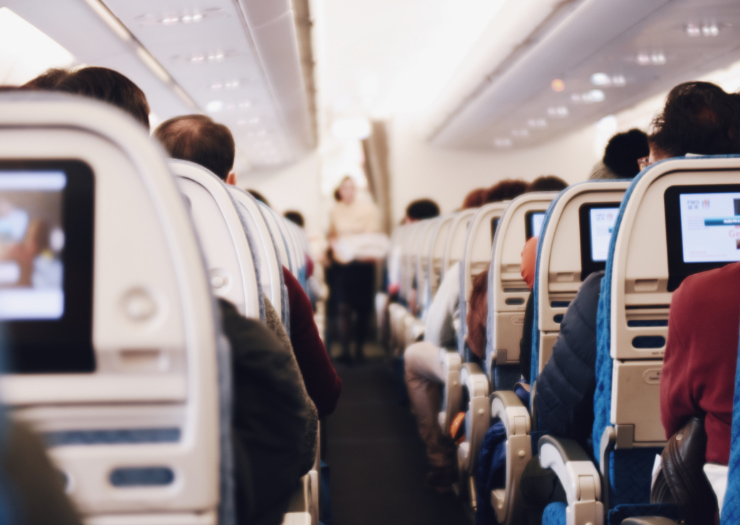New DOT Guidelines: A Win for Airline Passengers or a Price Hike?
In a landmark move aimed at enhancing passenger rights and ensuring a smoother flying experience, the Department of Transportation (DOT) has unveiled a comprehensive set of guidelines for airlines. These guidelines mandate automatic refunds for a range of scenarios, including cancelled flights, significant delays, route changes, seat downgrades, and accessibility issues, among others. With the promise of refunds within 7 business days, this announcement has sparked both excitement and skepticism among travelers.

“Passengers deserve to get their money back when an airline owes them—without headaches or haggling,” Secretary of Transportation Pete Buttigieg said in a release on Wednesday. “Our new rule sets a new standard to require airlines to promptly provide cash refunds to their passengers.”
Refunds on the Table:
Under the new guidelines, passengers are entitled to automatic refunds if their flight is cancelled or delayed beyond specific thresholds. For domestic flights, any delay exceeding 3 hours warrants a refund, while international travelers can claim refunds for delays surpassing 6 hours. Moreover, if an airline alters airports, adds connections, downgrades seating arrangements, or changes to a less accessible aircraft for passengers with disabilities, they are obligated to provide refunds.
Furthermore, passengers can expect refunds if their checked baggage is not delivered within 12 hours of arrival or if onboard amenities, like Wi-Fi, are unavailable during the flight. With recent increases in checked bag fees, these refunds offer relief to travelers.
The new regulations also include provisions for travelers unable to fly due to a “serious communicable disease” like COVID-19. If advised against travel by a country or medical professional, passengers are eligible for a travel voucher or airline credit valid for at least five years. Unlike other refund scenarios, additional documentation may be required. These measures aim to prevent the challenges faced during the pandemic when passengers struggled to obtain cash refunds for canceled flights. In 2020, airlines faced fines totaling $7.5 million for delayed refunds, eventually issuing $600 million in refunds to customers.
Implementation Timeline:
The new regulation takes effect 60 days post publication in the Federal Register. Airlines will have a grace period of six months to one year to implement the policies, depending on the refund type. This grace period acknowledges the logistical challenges airlines may face in overhauling their refund systems to comply with the regulations.
The new rule aims to simplify the refund process for various services and flight disruptions, eliminating the need for consumers to navigate complex procedures. Airlines are now required to notify affected passengers of their right to a refund, in addition to issuing notifications for delays and cancellations. Travelers can file consumer complaints with the DOT if they believe airlines aren’t complying with the new rules, which have been instrumental in securing record passenger refunds during the pandemic. Rest assured, the agency takes these complaints seriously and takes action accordingly.
A Boon or a Burden for Passengers?
On the surface, these new regulations seem like a win for passengers, offering them greater protection and recourse in case of disruptions or inconveniences during their travels. The assurance of timely refunds for various scenarios undoubtedly adds a layer of security and peace of mind for travelers.

The Price Dilemma:
However, there’s a lingering question on many minds: Will these enhanced passenger rights come at a cost? Some skeptics fear that airlines, burdened with the obligation of providing automatic refunds for a broader range of circumstances, may offset these expenses by raising ticket prices.
What Lies Ahead:
As the aviation industry navigates its recovery from the impacts of the COVID-19 pandemic and adapts to these new regulatory requirements, the coming months will offer insights into the real-world implications of these guidelines. Will passengers experience increased ticket prices as airlines adjust their business models to accommodate the refund mandates? Or will competition and market dynamics keep prices in check?
Final Thoughts:
While the DOT’s new guidelines undoubtedly prioritize passenger rights and aim to foster a more transparent and accountable air travel experience, the ultimate impact on ticket prices remains uncertain. As travelers eagerly await the implementation of these changes and observe how airlines adapt, one thing is clear: the conversation around balancing passenger rights and operational costs in the aviation industry is far from over.

Ephesus Turkey Cruise Port: Things to Do in Ephesus
Explore Ephesus, a cruise port attraction! Top things to do in Ephesus with our comprehensive guide for an unforgettable experience.

What to Know Before Visiting the Acropolis of Lindos
Step back in time at the Lindos Acropolis in Rhodes. See ruins, sea views, and history without booking a cruise excursion!

Unearthing the Past at Akrotiri – Santorini’s Buried Bronze Age City
Explore Akrotiri, Santorini’s ancient city buried by a volcano. Is it older than Pompeii? Can you visit from port without a tour? Yes!

What to Buy in Santorini: The Best Souvenirs in Santorini
Discover the best souvenirs to buy in Santorini—from pottery and olive oil to spices, beauty products, and breezy dresses.

Petrified Forest National Park in Arizona
Petrified Forest National Park in Arizona is a breathtaking landscape filled with colorful badlands, ancient fossils, and stunning petrified wood. This unique park showcases remnants of a prehistoric forest, now turned to stone over millions of years. Visitors can explore scenic trails, marvel at the Painted Desert’s vibrant hues, and discover ancient petroglyphs left by Indigenous cultures. Whether hiking, sightseeing, or learning about its rich history, the Petrified Forest offers an unforgettable glimpse into the past.

Is the Painted Desert a National Park?
The Painted Desert in northern Arizona is a mesmerizing landscape of vibrant badlands stretching across the Colorado Plateau. Its striking reds, purples, and oranges come from layered sedimentary rock, shaped by millions of years of erosion. Located partly within Petrified Forest National Park, this otherworldly terrain offers scenic drives, hiking trails, and ancient petroglyph sites. Visitors can explore overlooks like Tawa Point and historic landmarks like the Painted Desert Inn, immersing themselves in the region’s rich geological and cultural history. Whether admiring fossilized wood or capturing the ever-changing colors at sunset, the Painted Desert is a must-see wonder of the Southwest.
FOLLOW US ON SOCIAL MEDIA
- Facebook Group
- Explore Oklahoma Facebook Group
- TikTok
- Hot Deals Group
- Recipe Group
- Homesteading Facebook Group
- Don’t forget to invite your friend’s to our Facebook groups! We would also love to see your vacation pictures!

